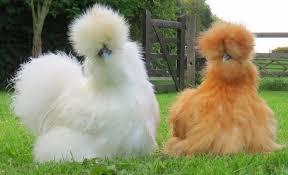Avian influenza, commonly referred to as H5N1 or "bird flu", is caused by a virus found among various species of birds. It is highly contagious among domestic poultry and has a mortality rate of nearly 100%, It can infect domestic poultry, including chickens, turkeys, quail, geese, ducks, pheasants, and guinea fowl. Since January 2025, Connecticut has had two poultry outbreaks in non-commercial "backyard" poultry flocks. H5N1 has been more frequently detected in wild birds. No additional H5N1 virus cases have occurred in people, livestock, or other domestic animals in Connecticut. No person to person spread of H5N1 has been detected, and the CDC continues to assess the risk to the general public as low. Surveillance for cases in humans and animals is ongoing throughout the state.
What You Can Do:
Keep Your Birds Safe:
Step 1: Keep your distance - Isolate your birds from visitors and other birds.
Step 2: Keep it clean - Prevent germs from spreading by cleaning shoes, tools, and equipment.
Step 3: Don't haul disease home - Also clean vehicles and cages
Step 4: Don't borrow disease from your neighbor - Avoid sharing tools and equipment with neighbors.
Step 5: Know the warning signs of infectious bird diseases - Watch for early signs to prevent the spread of disease.
Step 6: Report sick birds - Report unusual signs of disease or unexpected deaths.
Recognize the signs:
Birds may show one or more of the following signs:
Sudden death with no prior signs
Low energy or appetite
Purple discoloration or swelling of various body parts
Reduced egg production, or soft-shelled/misshapen eggs
Nasal discharge, coughing, or sneezing
Lack of coordination
Diarrhea
If you see symptoms in birds of poultry, contact the State Veterinarian at 860-713-2505.
Report Dead Wild Birds:
If you see several dead birds (more than 5) in one location or notice that several birds die in the same area over the course of several days, we encourage you to report it. If you observe this type of die-off, please call the DEEP Wildlife Division at 860-424-3011 and fill out this form.
Individual wild backyard birds that are found dead can be reported through the form and should be disposed of properly (bury or double bag and place in. your garbage receptacle).
Sick or dead domestic birds (mainly poultry) should be reported to the Connecticut Department of Agriculture, State Veterinarian at 860-713-2505.
How to dispose of dead wild birds:
Avoid direct contact with the bird. Wear gloves or use a shovel to place the bird in a plastic bag. If you do not have gloves, put your hand inside a plastic bag, grab the bird through the bag and pull the bag back over your hand. Tie the bag off, place that bag into a second plastic bag and tie that bag off as well. Spray the outside of the second bag with a 10% bleach solution as well as the area where the dead bird was found, any implements used to collect the bird, and andy boots or shoes that were worn while disposing of the dead bird. Double-bagged dead birds should be disposed of in the trash. Always wash hands thoroughly after disposal.
For more information, visit:
CT Department of Agriculture
USDA
CT Department of Public Health
CT Department of Energy & Environmental Protection

